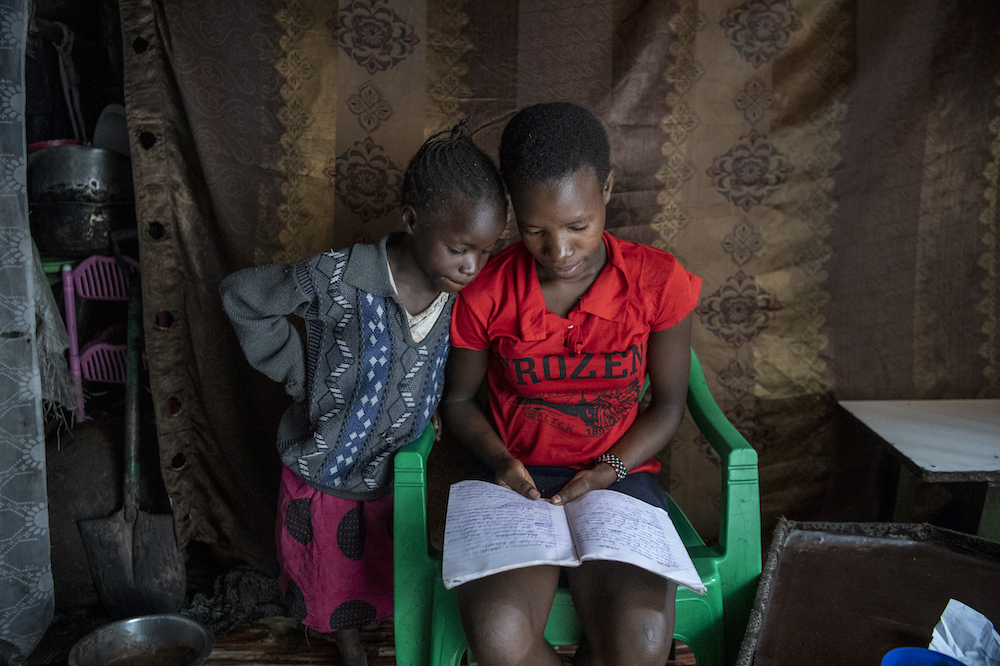
World Children’s Day: celebrating the right to education and taking action to unlock a better future
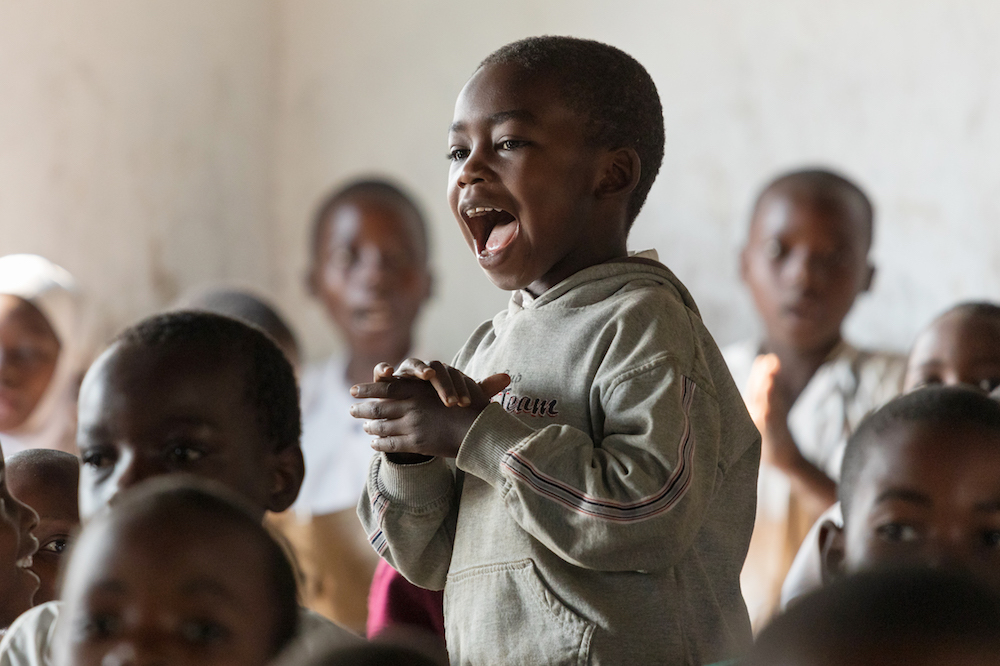
Right to education
Every child has the right to go to school and get a quality education. To mark World Children's Day today, we celebrate that right and look at how you can help us to ensure that right is realised for all children.
Jump to
About World Children's Day
It is held each year to promote international togetherness, awareness among children worldwide and the improvement of children’s welfare. It began as Universal Children’s Day in 1954 and is celebrated every November 20.
That date is also when the United Nations adopted the Convention on the Rights of the Child in 1989, which came into force in 1990. That means this year World Children’s Day also marks 30 years since the convention became effective.
What the Convention says
It is the most widely ratified international human rights treaty in history – backed by 196 countries and territories. The convention sets out a range of children’s rights, including:
- They have the right to an education
- They must be treated with dignity and respect
- They should be cared for, allowed to develop and to be part of their communities
- They have the right to express their own opinions and take part in decisions that affect them
- They have the right to be protected against violence and discrimination – wherever they live and regardless of their ethnic or social origin, ability, birth or other status.
How education fits in
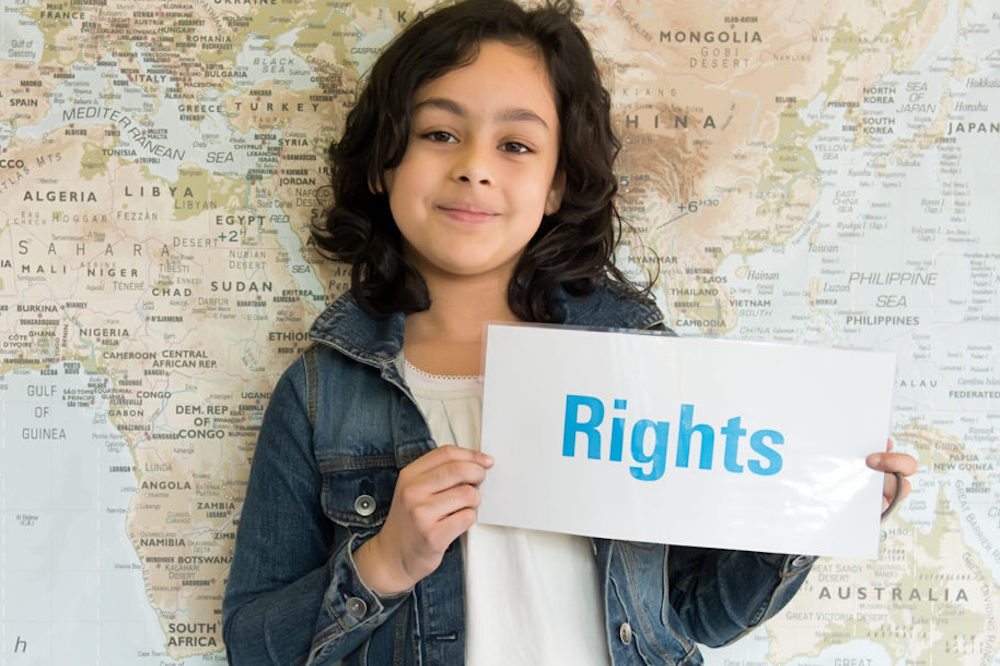
Every country must work to ensure every child is at school (UN Photo)
Article 28 of the Convention on the Rights of the Child says every country which signs it should:
- Make primary education compulsory and available free to all
- Encourage the development of different forms of secondary education, including general and vocational – and make them available and accessible to every child
- Make higher education accessible to all
- Encourage regular attendance at school and reduce drop-out rates
Article 29 says education must develop every child’s personality, talents and abilities to the full. It must encourage the child’s respect for human rights, as well as respect for their parents, their own and other cultures, and the environment.
Why the right to education is vital
Every child in the world has the right to an education enshrined in the Convention on the Rights of the Child. But nearly 260 million children – about one in 10 – were out of school even before the Covid-19 pandemic struck.
Hundreds of millions more have had their education disrupted this year by the health crisis and there are fears that many will never return to the classroom.
“The words of the Convention on the Rights of the Child cannot be forgotten,” said Theirworld President Justin van Fleet. “In 2020, a global pandemic, climate change, poverty and political unrest place the lives of countless children on the margins at risk. Taking action to realise the right to education is the key to unlocking a better future.”
Without quality education for EVERY child, we won’t be able to help unleash the potential of the next generation. You can help to make the case for every child to have the best start in life, a safe place to learn and skills for the future.
All the tools you need are in The Key, Theirworld’s new online resource for campaigners. Watch our new World Children’s Day video to help unlock big change…
Theirworld gives children a voice
Theirworld has a proud history of standing up for the rights of children. You can learn all about what we do to unleash the potential of the next generation.
One example of our mission to uphold child rights and end the global education crisis was our #UpForSchool campaign – which in 2014 delivered the biggest education petition in history to UN headquarters with more than 10 million signatures.
#UpForSchool included an event called Our Future, Our Rights, which was hosted by Theirworld’s A World at School initiative in London and featured Nobel Peace Prize winner Kailash Satyarthi. You can read all about it here.
Kailash Satyarthi @kwatkinsodi @anncotton + others to speak @ London #UpForSchool rally http://t.co/c3gaSWalEq #CRC25 pic.twitter.com/SJqyaLNYvX
— GCPEA Secretariat (@GCPEAtweets) November 17, 2014
What children say about learning
Student Suzan Mohammad took her classes remotely at home during the school closures because her teachers had been trained by DOT Lebanon, with support from Theirworld. She said: “During the distance learning I have benefited a lot from having a tablet and using Zoom. That helps us to have contact with the teachers and this helps me a lot to understand lessons.”
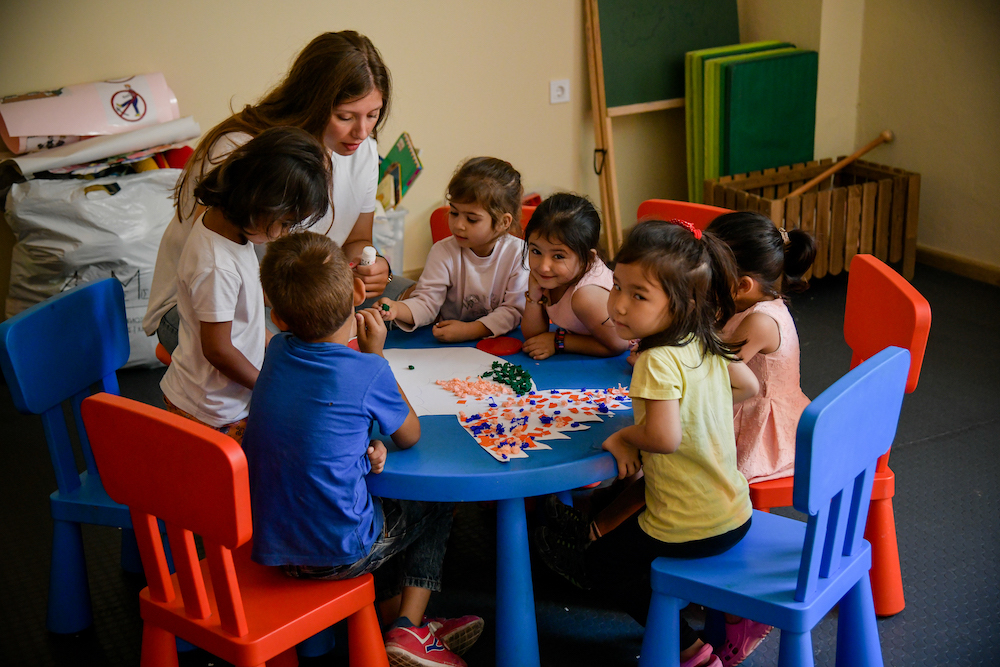
(UNICEF/Greece/Iliaktida)
Mohsen, 11, from Afghanistan, spoke in the summer about learning at the Tapuat education centre on the Greek island of Lesvos, after it opened a second building with support from Theirworld. She said: “I am here for four months and in the beginning I thought Greek would be hard – but now I can write many words. I like that we are also learning math. Our teachers care about us a lot and we would like to spend more time at Tapuat.”
Events for World Children's Day
Landmarks around the world will be lit in blue – the official colour of the UN children’s agency UNICEF. Famous sites that have taken part in previous years include the Acropolis in Athens, Sydney Opera House, the Empire State Building, the Shanghai Tower and the Arc de Triomphe in Paris.
Rashtrapati Bhavan, Qutub Minar and other monuments to #GoBlue on World Children's Day https://t.co/uPmhC5Gx69
— TOI Cities (@TOICitiesNews) November 15, 2020
Some countries also have their own Children’s Day which they celebrate on other dates. In Mexico, for example, Día Del Niño is on April 30. Some schools (in pre-pandemic days) have games, music and food while others are closed for the day and families have a day out with their children.
Celebrated DJs including Carl Cox and Sasha will take part in a livestream event in aid of World Children’s Day. Running from November 20 to 22, the Set For Love Xmas Appeal will raise funds to create a sustainable future for children in developing countries.
“In honour of World Children’s Day, I illustrated children of different backgrounds that are all working together as a family, to help our planet become a safer place for everyone." – Sara, 24, ????????
Reimagine a better ???? for every child and post your drawing with #voicesofyouth. pic.twitter.com/j6gkqk8GfH
— UNICEF Jamaica (@UNICEFJamaica) October 27, 2020
UNICEF is holding the World Children’s Day #voicesofyouth challenge. Young people aged 13 to 24 are asked to imagine and draw the world they want to live in after Covid-19. Find out more here and see some fantastic illustrations.
World Children’s Day will be celebrated in all parts of the world and by a huge variety of organisations – here is UK-based Down Syndrome International getting ready.
The right to education ... in quotes
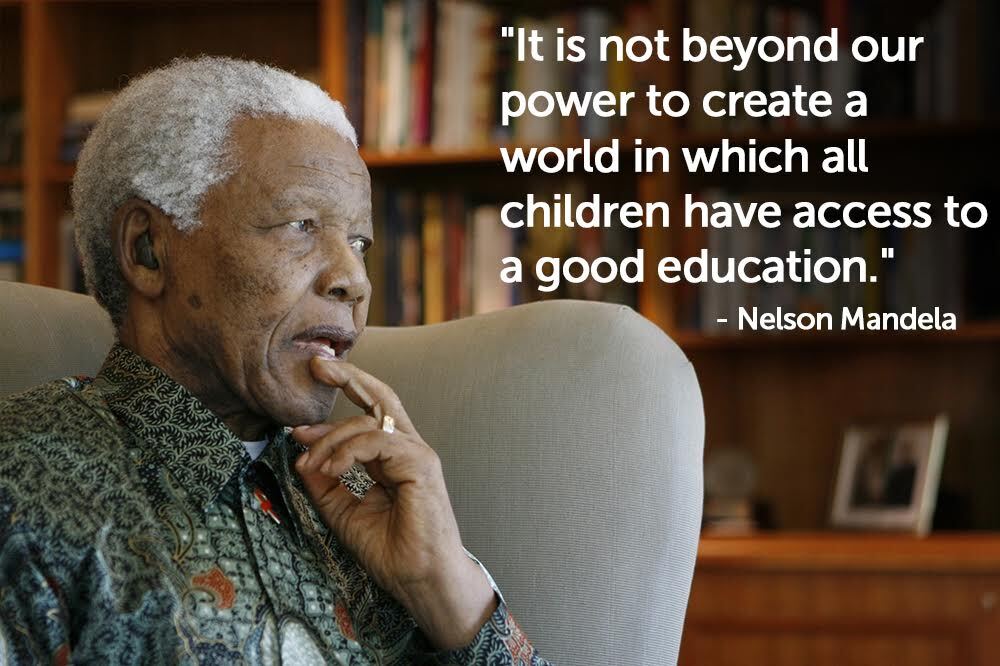
(Nelson Mandela / Facebook)
“Intelligence plus character – that is the goal of true education.” – Martin Luther King
“A child without education is like a bird without wings.” – Tibetan proverb
“Will we ever reach a point where we value the right of every child enough to give them a brighter future – with education at the heart of how they unlock their potential? As we look around the world in its fragile disconnected state, the time to start would be now.” – Theirworld Chair Sarah Brown
World Children's Day trivia
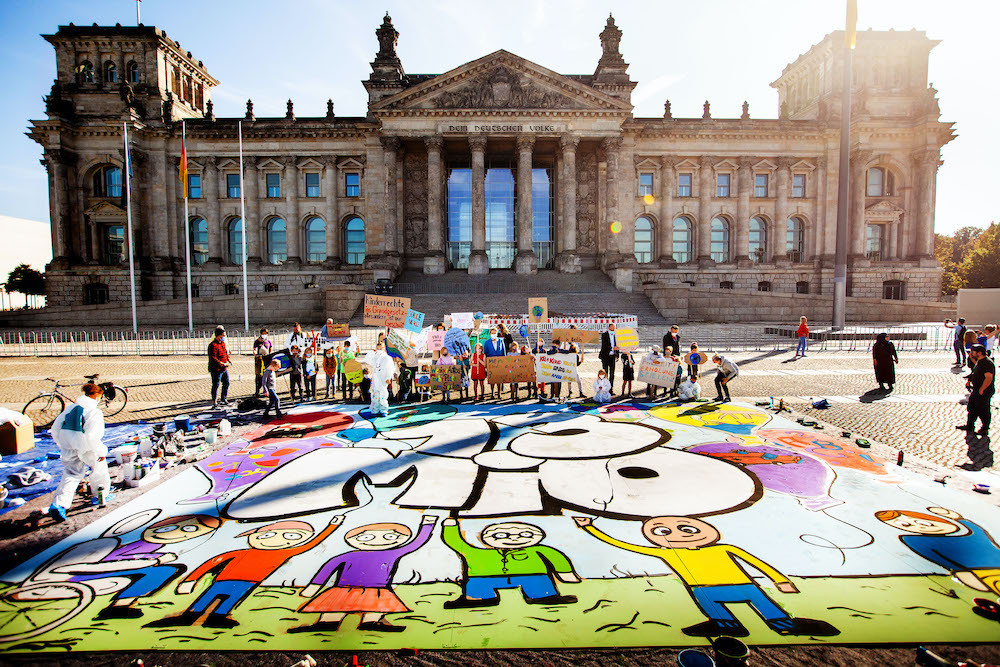
Young people from Berlin painted this huge picture about children’s rights in front of the Reichstag building to promote World Children’s Day 2020 (UNICEF / Julia Zimmermann)
The Interview Dudes Podcast is hosted by Jack, Nathan and Ben – three grade 7 students from Canada. They interview people with interesting jobs and will celebrate World Children’s Day by talking to Susan Le Jeune, the British High Commissioner to Canada.
We are looking forward to our interview with the British High Commissioner @SusanleJeuneUK as part of World Children's Day in November! Thanks Susan! @UKinCanada #WorldChildrensDay Give us a follow! pic.twitter.com/L7AhZRCMCq
— The Interview Dudes Podcast ???????? (@DudesInterview) October 30, 2020
The first Children’s Day in the United States was in 1857. The Reverend Dr. Charles Leonard, pastor of the Universalist Church of the Redeemer in Chelsea, Massachusetts, named it Rose Day. It later became Flower Sunday and then Children’s Day
How you can take action
You can help to make the case for quality education. Taking action is the key to unlocking big change. Find out here what you can do to make a difference.
More news

